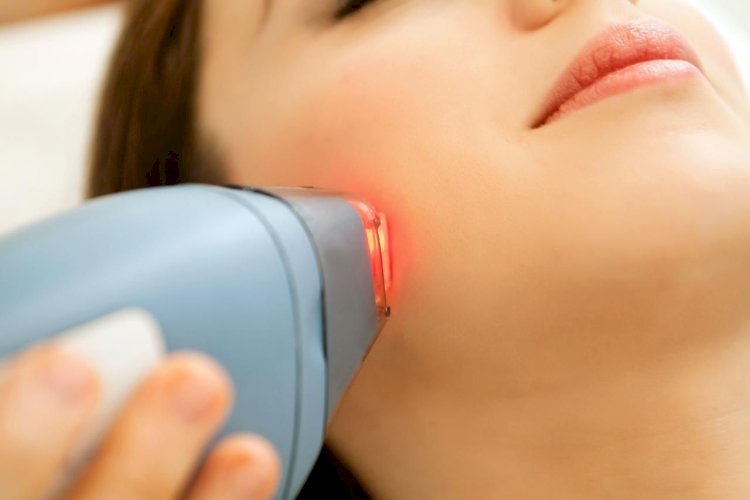Why Do People Go For Laser Treatment For Psoriasis?
Laser therapy is shown to make the psoriasis condition mild. It effectively works for mild to moderate conditions of psoriasis. Here are the reasons behind it.

Image credit: ARICAN/E+ / Getty Images
How Does Laser Therapy Help?
You know how uncomfortable and embarrassing the red, itchy, scaly skin can be if you are living with psoriasis. Including steroid cream or other medicated creams, oral medications, and light therapy are the treatment options for psoriasis.
Medications can have side effects and light therapy requires a regimen of three sessions a week for two to three months followed by maintenance therapy as all of these treatments work well.
We present here thereby another option that comes for treating psoriasis which is excimer lasers, that are delivering ultraviolet light to delocalised areas of the skin. To help control areas of mild to moderate psoriasis without harming healthy skin around them, this treatment uses intense, focused doses of laser light. Whereas it works in fewer sessions with stronger doses of light that can reach deeper into the affected skin is targeted laser therapy which is similar in effectiveness to traditional light therapy. For reaching psoriasis in hard-to-treat areas similar to the elbows, knees, palms of the hands, soles of the feet, and scalp.
Here is how laser treatments for psoriasis work. Is it effective in clearing up the skin? For psoriasis here is what the research shows about the new treatment.
Psoriasis Laser Treatment: How It Works
Performed in the dermatologists’ office is excimer laser treatments. Taking only a few minutes is each session. The doctor aims the laser directly at patches of psoriasis during the treatment. It is possible that you might feel some warmth at the site and also a snapping sensation against the skin.
In this type of treatment, it is shown directly at the psoriasis plaques, as excimer lasers aim a high intensity of ultraviolet B (UVB) light dose coming of a very specific wavelength of 308 nanometers. It reduces the risk of UV radiation exposure as the laser light never touches the surrounding skin. Used to treat mild-to-moderate psoriasis are excimer lasers.
Therefore, here those patients usually have 2 sessions a week also for 4 to 10 sessions to get the results with excimer laser therapy.
Based on the thickness of your psoriasis plaques and your skin colour whereas a lower dose is used on the lighter skin, your doctor will determine the dose of laser light. You will be given dark goggles to protect your eyes during the procedure.
How Well Do Psoriasis Laser Treatments Work?
On people with mild-to-moderate psoriasis, the laser treatments work well. It’s found to be not effective for people who have psoriasis on those large areas of the body because the light is concentrated.
Research is still underway to confirm its effectiveness as the laser treatment for psoriasis is still a relatively new therapy. Hereafter studies show that most people who were treated with lasers saw real improvements in the skin lasting anywhere from several months to a year. Usually seen within 8 to 10 sessions are the results.
What You Should Know Before Starting Laser Treatment
This therapy isn’t for everyone as laser treatment for psoriasis can produce dramatic results in some people. Have a complete health history and exam done before starting treatment to make sure you are a good candidate.
It is always possible to avoid laser treatments if you have:
Lupus or scleroderma
Sun sensitivity
Xeroderma pigmentosum (which comes as an inherited disease that causes sensitivity to sunlight)
Risks for, or a history of, skin cancer
Making you sensitive to the sun is the condition that requires you to take medications
What Are The Risks To The Laser Treatments For Psoriasis?
Some people have reported side effects after treatment that includes the following whereas laser therapy is generally safe.
Affected with temporary redness, itching, burning, and stinging
Blistering
Those purple-coloured spots (purpura) on the skin
Thereby darkening or lightening of the skin ( as hyperpigmentation or hyperpigmentation)
Also scarring
There is surely a need to determine in case exposure to UVB light from the excimer laser might therefore increase the long-term risk for skin cancer.
How Do We Conclude The Discussion?
Psoriasis is a difficult condition to be treated usually by anyone. It requires great experience and you can always go for a consultation with an expert. Here we find that there are many who have found a permanent solution, whereas others who still suffer from the pain and another discomfort from the condition.
Laser therapy is the latest find when it comes to the treatments for psoriasis. Try it out in case you are still looking for a cure for the skin condition. Perfect prevention or cure is still far away for psoriasis patients. It is always good to keep them in check. So wait until research finds a permanent solution for it.
What's Your Reaction?





















